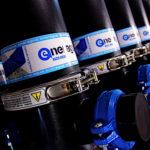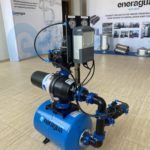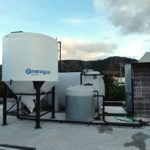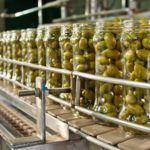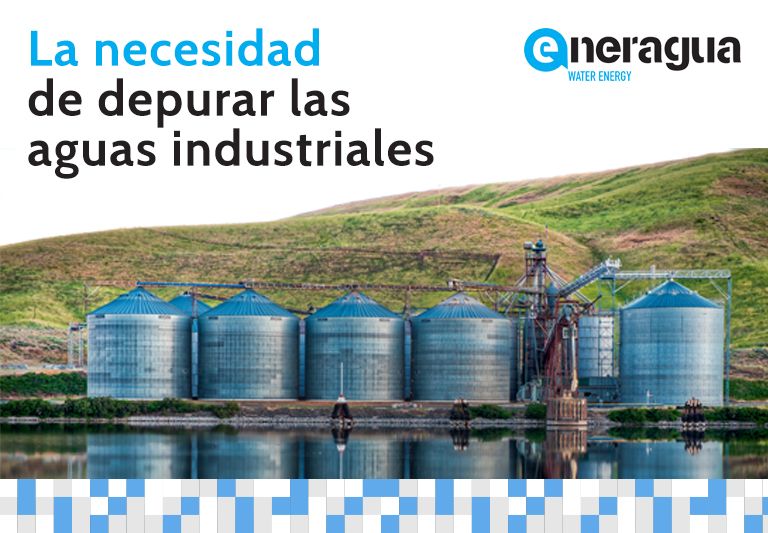
Hello, welcome to the Eneragua blog. This time we want to address a topic of special interest and relevance: The need to treat industrial waters. These processes of treating wastewater derived from industrial activity are now, more than ever, a cause for concern (and at the same time an opportunity) for companies, which must adapt to increasingly demanding regulations. Let’s tell you a bit about this.
Objective: Reuse
Industrial activity, whether agricultural, food-related, or from any other sector, uses water in most of its processes. That is a common fact. What varies is the use given to that water once used: it can be discharged into the environment, it can end up in the public sanitation network, or it can be reused. In any of the three cases, a process of treatment and purification of that water is required.
This last use, reuse, is the sustainable ideal that companies are investing in their effort to adapt to regulations and the United Nations Sustainable Development Goals. This investment has repercussions not only economically, with resource optimization, energy savings, and increased profits but also at the corporate and institutional image level of the companies themselves, which appear to their customers and investors as environmentally conscious businesses.
Treatment and Purification
The process of treating this type of water includes a series of physical, chemical, and biological treatments aimed at the total elimination or the maximum possible reduction of contaminants. The goal is to obtain a safe and environmentally sustainable water flow and a solid residue that can be rejected or reused.
These treatments involve several stages:
- Pretreatment: This phase includes the filtration and separation of coarse and fine solid residues to facilitate subsequent treatment.
- Physical-chemical treatments: Various types of treatment exist, such as the use of activated carbon, air extraction, ion exchange, coagulation and chemical precipitation, lime treatment, or membrane filtration.
- Settling: The final stage of filtration.
In addition to these processes, there are also biological treatments, such as aerobic processes, solar oxidation, nutrient removal, or water disinfection.
The sludge derived from the filtration processes of industrial waters is processed separately using techniques that also facilitate their reuse and utilization.
An Investment for the Future
As mentioned earlier, investing in water treatment is, in addition to a necessity, a source of benefits for companies. A future investment that will benefit them and everyone else, as water is the most important natural resource on the planet. Responsible use of water is an exercise we must all undertake together.
Leave the care and utilization of your wastewater in the hands of professional companies like us, with over 30 years of experience in the industrial water treatment installations sector.
Our qualified professional team, composed of engineers from various specialties, is ready to provide you with the support and advice you need at all times. Just contact us, and we will conduct a personalized study of your facilities so that you can start getting the most out of your industrial water treatment right away.
Principio del formulario

